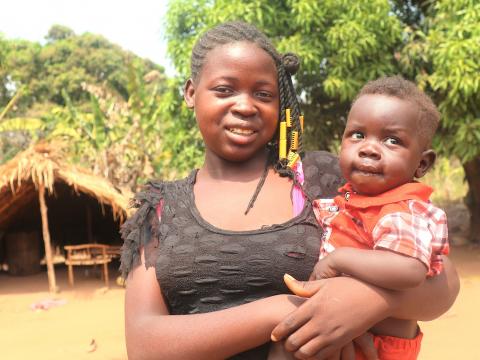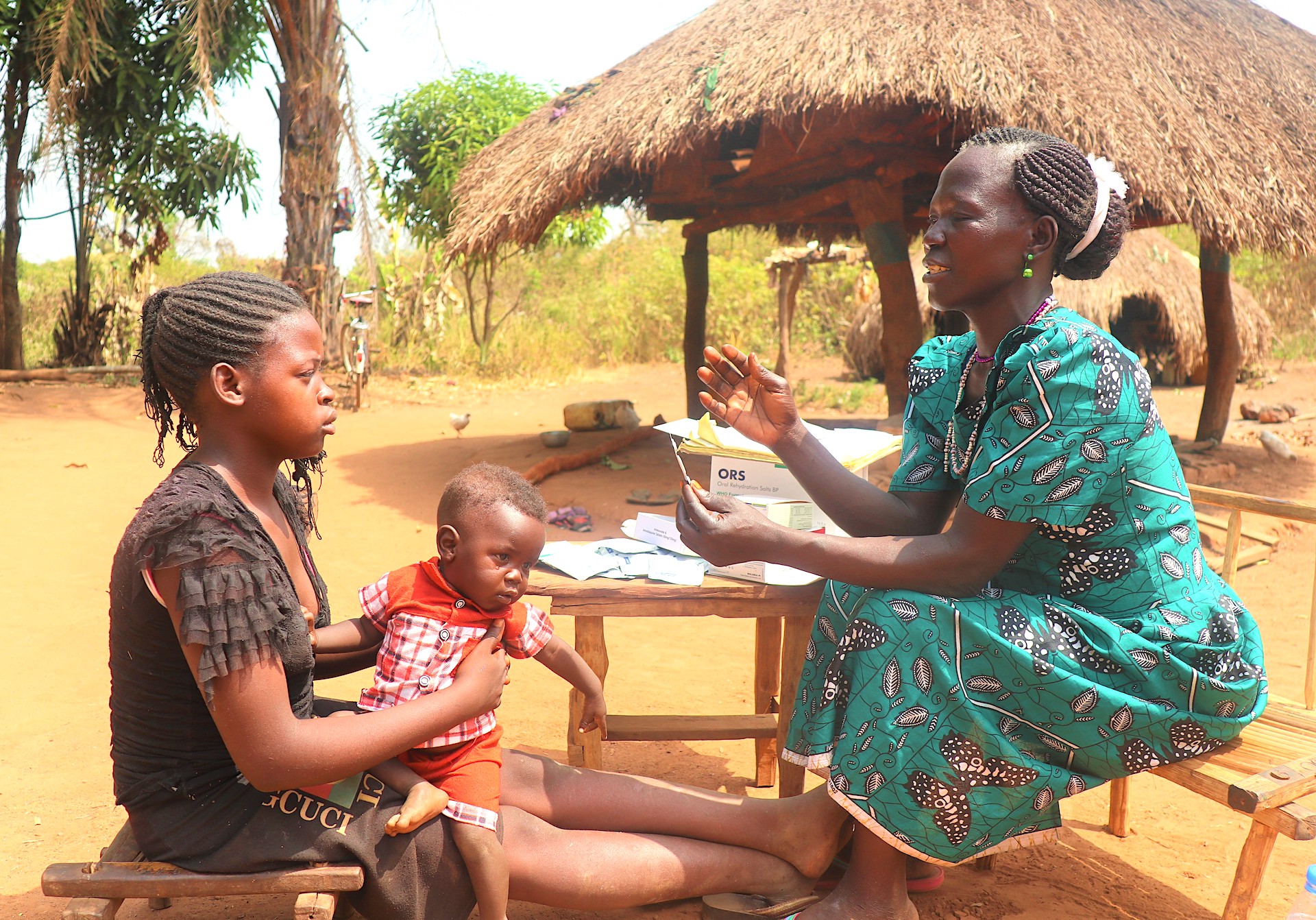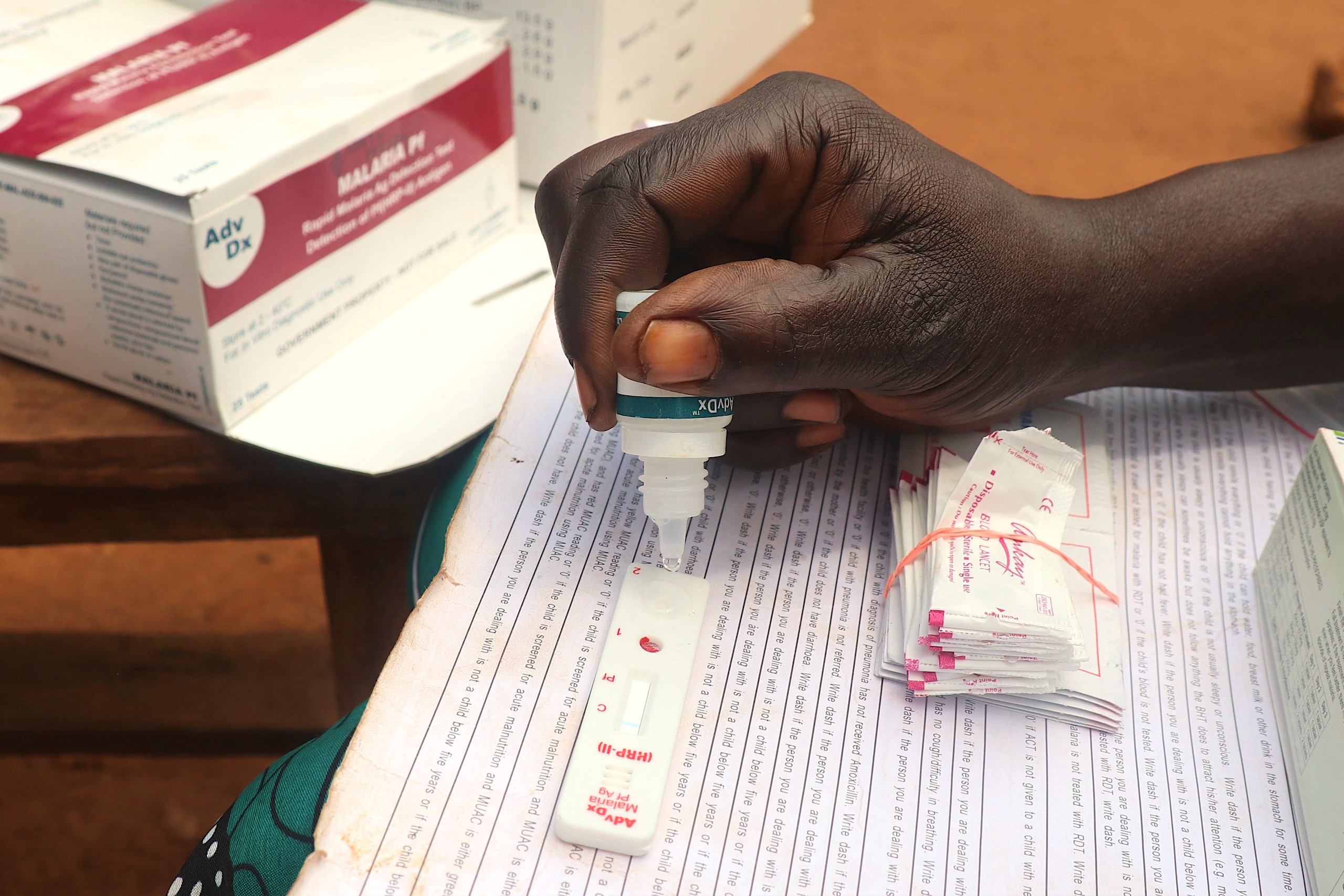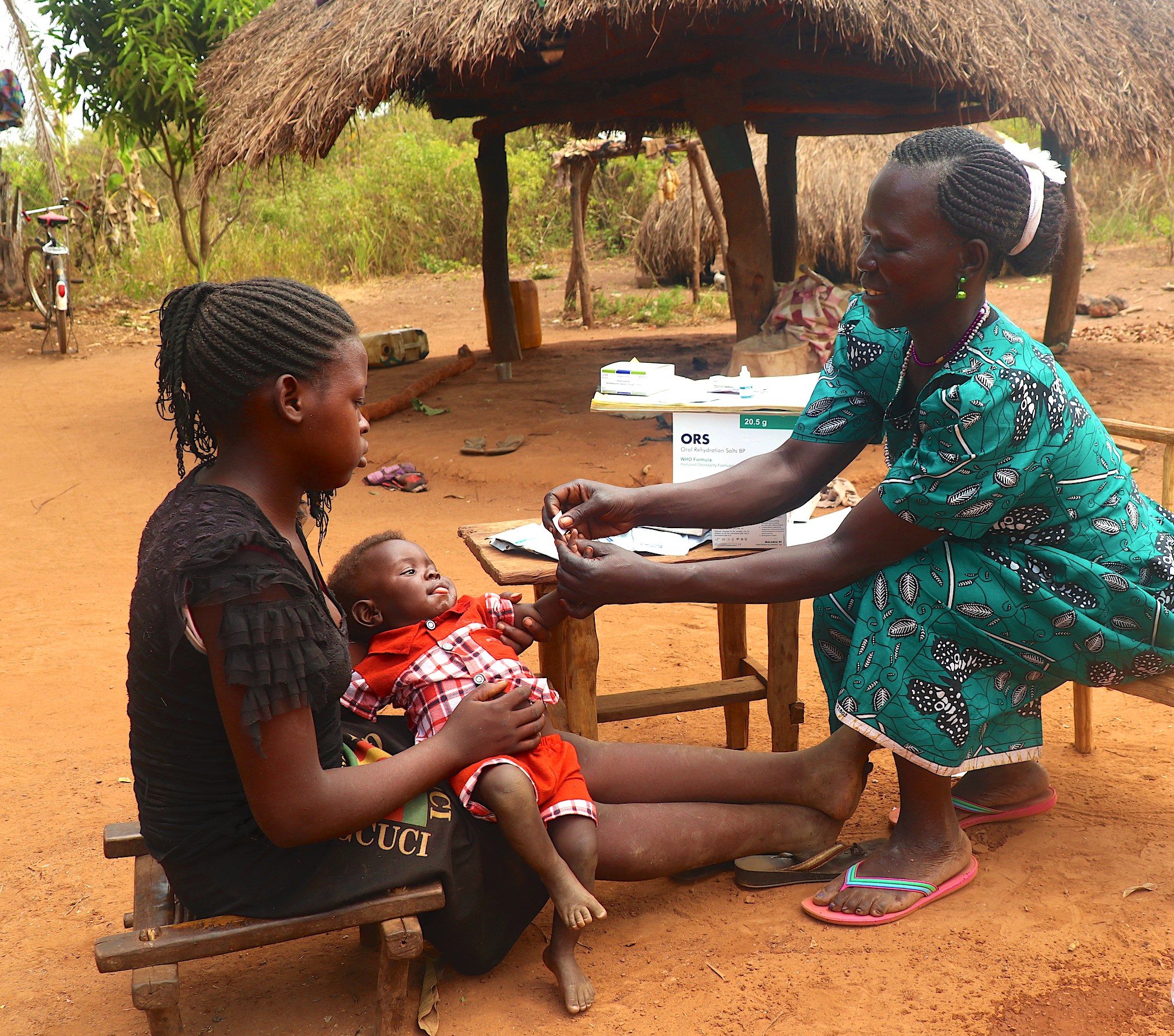Boma health workers in South Sudan’s Ezo County help save lives of over 18,000 children

Every morning in Banduguyo Boma in Ezo County, a part of Western Equatoria State, mothers wake up, go to the farm, some to the market, and others take their children to the hospital. This normal activity takes approximately five hours of walking for lack of any means of transport.
“Growing up, I witnessed many people in my village Banduguyo lose their children to minor diseases due to poor health services and the distance from clinics and hospitals for medical care services,” Salina shares.
In partnership with Health Pooled Fund (HPF), World Vision introduced the Boma* Health Initiative (BHI) in Ezo and other nearby counties of Western Equatoria State in 2019.
WATCH: How mothers in South Sudan fight COVID-19 and malnutrition

The initiative aims to improve and refocus the delivery of community health services by training capable community members to become health workers and prioritize health promotion, disease prevention, selective treatment such as malaria, pneumonia, and diarrhea, and early referral of complicated diseases and conditions.
Eighty-four community health workers were trained, three per boma, who are tasked to conduct regular home-to-home visits to raise awareness and provide treatment to children under five years of age, using the rapid diagnostic test (RDT) to assess malaria. In 2020 alone, 18,417 children got treated for malaria, diarrhea, and pneumonia.
Salina, a 17, saw how her parents walked from her village to Ezo town for treatment. Now a mother herself, Salina is thankful that her child can easily access medication from home through the BHI project.
WATCH: South Sudanese mothers battle the pandemic with livelihoods and resilience

According to Salina, some families give their children herbal medicine, which sometimes reduced the pain but does not treat the disease, often leading to loss of lives. “BHI helped save the lives of many children in our county,” she says.
This project gives the people much time to focus on farming or other activities to provide for their families. The community is happy with the program, so we urge World Vision to continue.
She says, “Our children were provided treatment at home several times, and we all participated in health education activities. We appreciate the services and the care for our children in the community.”
The BHI not only give services to children but also refer pregnant mothers to health facilities for delivery, antenatal care, postnatal, and family planning services. They also train families and communities to prevent, recognize signs of illnesses and seek prompt and appropriate care.

“I can now tell if my child is sick because of the frequent awareness raised in the community and, I can reach out to the health workers for support as we belong to the same community,” she adds.
Another member of the community, Michael Nabaigo, father of one, shares, “I am a blind man, and this project saved my life. I do not struggle to take my 3-year-old child to the hospital, which in my condition, could put both of us at risk.”
He adds, “This project gives the people much time to focus on farming or other activities to provide for their families. The community is happy with the program, so we urge World Vision to continue.”
Salina concludes, “Every child deserves a chance to live their lives and achieve their dreams. I am excited that we have the services in the community. Henceforth, no child will die from these minor diseases.”
WATCH: Women on the frontline boosting South Sudan's food security

Joseph Remi, World Vision’s Project Manager shares, “This approach is tailored with the South Sudan Ministry of Health’s (MOH) community health program to ensure that critical lifesaving services are closer to the people in the community, reduce inequities of health care for children under five years.”
He adds, “This helps address the top three common diseases among children in South Sudan which constitute over 30% of all outpatient consultation. The BHWs also play a significant role in the COVID-19 response. All the 84 in Ezo are trained on risk-reduction messaging work, acting as the front line workers.”
“They do this door to door and educate community members on home-based management of COVID-19 through messages, advice, and other requirement to prevent the virus starting from home”, he concludes.
* A boma is a lowest-level administrative division, below payams, in South Sudan.
WATCH: #HiddenHero: Serving others with love and courage during the COVID-19 pandemic
Story and photos by Scovia Faida Charles Duku, Communications Coordinator